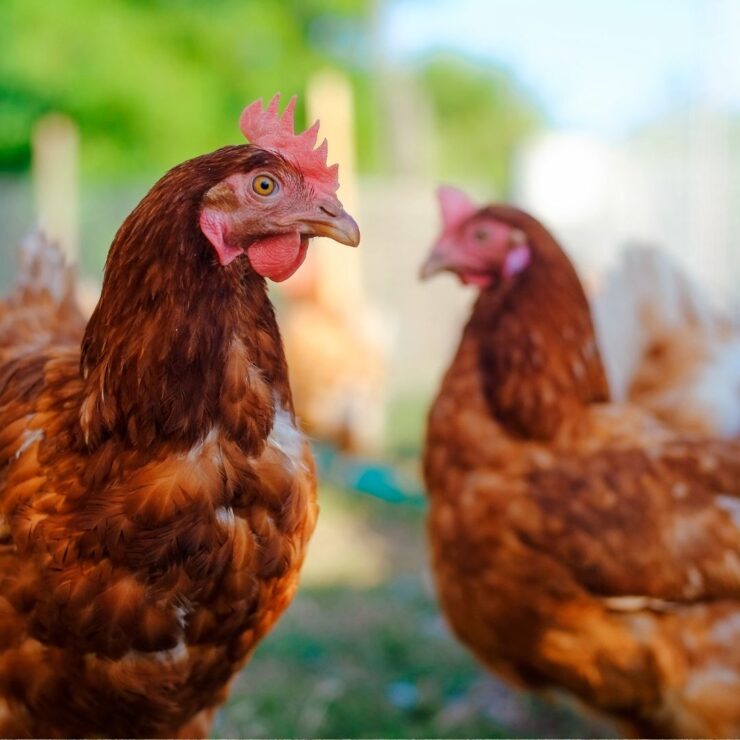 Considering A Backyard Flock? Raising chickens can offer many rewards – wholesome, home-raised eggs, enjoying the beauty of wide ranges of poultry breeds and types, and the unique, full personalities individual birds personify.
Considering A Backyard Flock? Raising chickens can offer many rewards – wholesome, home-raised eggs, enjoying the beauty of wide ranges of poultry breeds and types, and the unique, full personalities individual birds personify.
If you’re ready to raise your own chickens, ducks or other poultry, we’re here to help.
Poultry comes in a variety of species, breeds, shapes, sizes and colors. Most families interested in eggs or meat choose chickens. But show birds, game birds, waterfowl and turkeys are becoming increasingly popular for those who simply enjoy watching colorful and unique birds in their backyard. The species and breeds you choose depend on your personal goals as a small-flock owner.
Chickens for Egg Production
Optimal egg production may be achieved using White Leghorn hybrids, the most efficient breed when it comes to converting feed to eggs. These birds weigh about 3 pounds at 20 weeks of age and about 4 pounds when mature. Rhode Island Reds and Andalusians also are good egg layers and add a splash of color to your flock. If you’re looking to gather more colorful eggshells, though, look no further than the Ameraucana. They are known for laying blue and blue-green eggs.
Chickens for Meat Production
Chickens raised for meat often are hybrids or combinations of many breeds that result in desirable growth and carcass traits. One such hybrid is the Cornish cross. These chicks grow very rapidly, reaching 4 to 6 pounds by 6 to 8 weeks of age, and do so with excellent feed conversion (that is, the pounds of feed needed to attain 1 pound of weight is quite low). This allows them to reach market weight faster.
Chickens for Dual-Purpose Production
Many small-flock owners prefer Rhode Island Reds, Rocks, New Hampshire, Orpingtons or sex-linked hybrids. These birds produce brown-shelled eggs and have meatier carcasses than Leghorns. They may produce fewer eggs than Leghorn hybrids and are less meaty than true meat birds, but they do well serving the dual purpose of providing meat and eggs for your family. In addition, many breeds with a variety of colors and patterns fall into this class, making for a colorful, eye-pleasing flock.
Chickens for Show or Pets
There are a multitude of unusual, exotic-looking, chicken breeds that are fun to show or simply own as unique pets. Consider, for example, the Silkie, White Crested Polish or Japanese. They display a wide variety of personalities, colors, patterns, plumage styles and comb types. Many of these standard breeds also are available as bantams. Bantams are significantly smaller and may be a better option because they require less space. Be sure to thoroughly research the needs of individual breeds before purchasing them.
Chickens and Your Community
Local laws and ordinances for raising poultry vary from community to community, with new and changing rules going into effect all the time. Make sure to check with your local government’s laws and ordinances before getting your flock. For local code information, visit your community’s government website.
Once you’ve made a final decision to get chickens, we recommend letting your neighbors know, and sharing the eggs once your chickens start to lay! They’ll be curious about your new friends and appreciative of the wholesome eggs. This small gesture of good will may help avoid frustrations later on, due to noise, oders, or other nuances poultry could cause. Also keep in mind that roosters are not needed for chickens to lay eggs and are often not allowed in urban environments, as they tend to be rather noisy.
Don’t forget to visit North Fulton Feed for all your poultry supplies and feeds!
